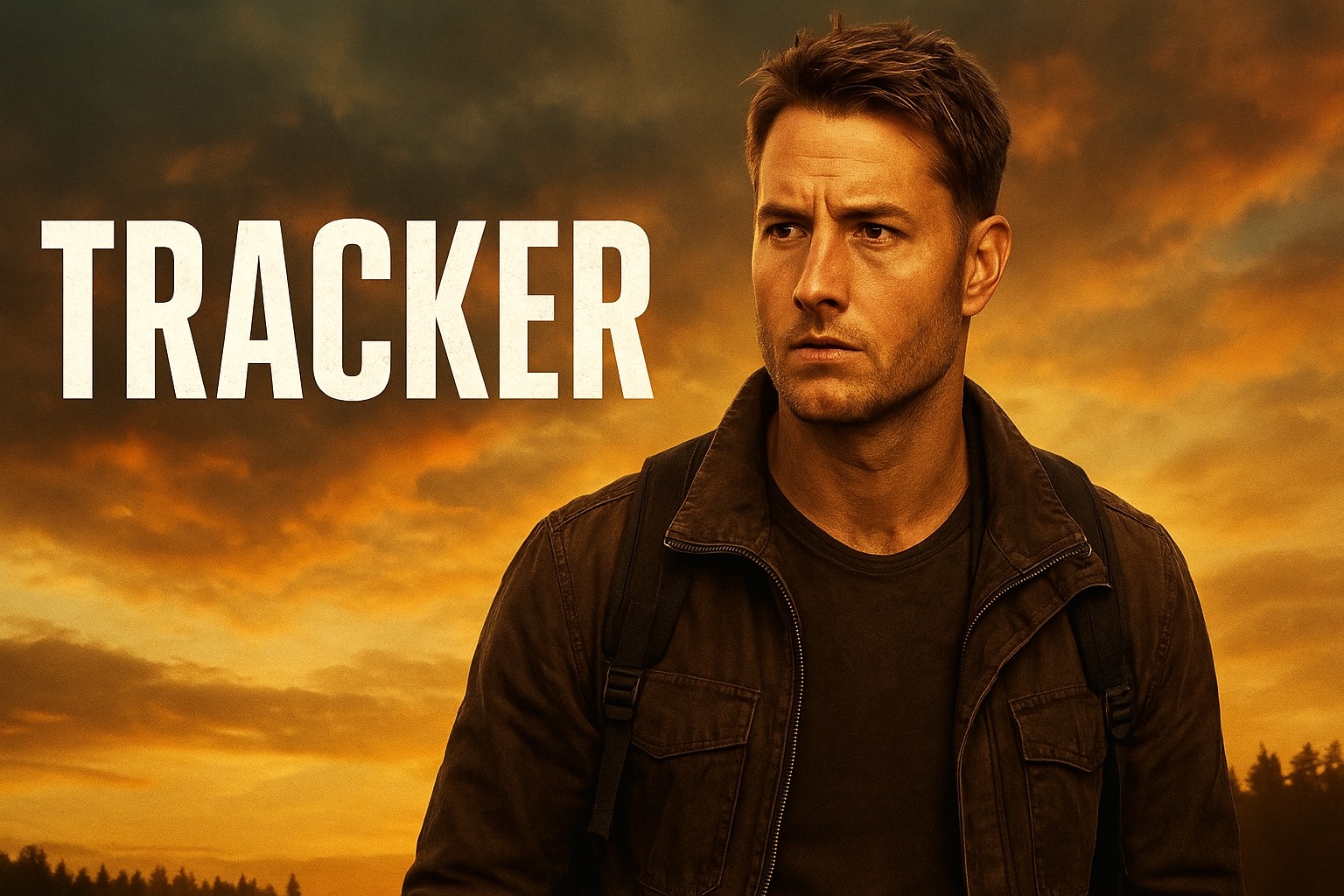
Network television is full of procedurals—crime dramas, mysteries, and thrillers. But every so often, one breaks through the noise. Tracker, led by Justin Hartley as the intensely skilled and deeply driven Colter Shaw, has done exactly that. In just a short time, the show has carved out its identity as a one-man powerhouse built around a character who thrives on danger, instinct, and the relentless pursuit of missing people.
In this in-depth look, we unpack exactly how Tracker turned into the perfect one-man show, why Colter Shaw’s methods keep viewers hooked, and what makes this series such a standout in today’s television landscape.
Understanding the Power of the One-Man Show Format
Why Audiences Love a Lone-Wolf Hero
There’s something innately compelling about a protagonist who stands alone. Audience members admire a character who solves impossible cases using nothing but intelligence, grit, and a sense of justice—and Colter Shaw embodies all of that.
Colter Shaw as the Modern Survivalist
Shaw isn’t just a detective. He’s a survivalist with a nomadic lifestyle, traveling across the country with nothing but his gear, experience, and instincts. That setup immediately separates Tracker from typical investigative shows.
Justin Hartley’s Impact on the Series
Perfect Casting in a High-Stakes Role
Justin Hartley brings a grounded yet charismatic presence to the role, balancing vulnerability with unwavering determination. His performance transforms Shaw from a standard TV protagonist into a textured, layered hero.
Emotional Weight Behind Colter Shaw
Shaw’s motivation stems from a complex family past filled with mystery, conflict, and trauma. Hartley brings those emotional undertones to the surface, giving viewers more than just action—they get depth.
What Makes Colter Shaw Different From Other TV Investigators?
A “Reward Seeker,” Not a Detective
Colter Shaw doesn’t work for a badge or a law enforcement agency. He tracks missing individuals for reward money—an unusual angle that adds nuance to each case.
A Code of Integrity
Even though he accepts rewards, Shaw isn’t driven by greed. His moral compass guides every decision, and that makes him not just intriguing, but admirable.
His Unique Skill Set
Shaw’s background in survival training is his superpower. Tracking, reading terrain, understanding human psychology—he uses all of it to outsmart criminals and rescue victims.
The Heart of the Show—Finding Missing People
Each Case Feels Urgent and Personal
The show excels at making each disappearance feel like a ticking clock. The stakes are high not because of large-scale conspiracies, but because every life matters.
Viewers Feel the Tension
The writing, pacing, and Hartley’s performance work together to create episodes filled with adrenaline and emotional investment.
Realistic, Grounded Case Scenarios
The mysteries in Tracker often reflect real-world situations—runaways, kidnappings, accidents, family disputes—which enhances the show’s relatability.
How the Lone-Wolf Format Strengthens Storytelling
A Focus on Character-Driven Narratives
Without a large ensemble overshadowing him, Shaw becomes the anchor of every episode. His internal struggles and beliefs shape how each case unfolds.
Mobility Makes the Show Fresh
Shaw moves constantly from city to city. This creates:
-
New environments
-
New challenges
-
New supporting characters
That roaming structure prevents the show from feeling repetitive.
Supporting Characters Add Flavor Without Diluting the One-Man Focus
The Perfect Balance
While the series centers around Shaw, recurring characters like Velma, Bobby, and Reenie add humor, information, and emotional connectivity.
They Support—Not Overshadow
These characters complement Shaw’s journey instead of competing for the spotlight. That’s essential in maintaining the one-man formula.
The Action and Survival Elements
Shaw’s Survival Techniques Elevate Every Episode
From tracking footprints to predicting an abductor’s escape route, Shaw’s methods feel authentic and intelligent.
Audiences Love Competence
There’s irresistible appeal in watching someone exceptionally good at what they do. Colter Shaw exemplifies that competence at every turn.
Colter Shaw’s Personal Backstory Drives the Show Forward
The Mystery of the Shaw Family
The show slowly reveals the truth behind Shaw’s father, siblings, and past trauma. This overarching narrative keeps fans emotionally invested.
Trauma as Motivation
Shaw’s childhood taught him survival—but it also left deep emotional scars. Tracker uses this tension to fuel long-term storytelling.
Why Tracker Stands Out Among Crime Dramas
A Fresh Format in a Crowded Genre
With hundreds of procedurals available, Tracker breaks from the pack by embracing a hybrid structure:
-
Action
-
Mystery
-
Survival
-
Emotional depth
The Show’s Pacing Keeps Viewers Hooked

Each episode mixes intensity, quiet introspection, and bursts of high-stakes action—creating a rhythm that keeps audiences returning.
Viewer Connection: Why Fans Root for Colter Shaw
He’s Flawed, Real, and Relatable
Shaw isn’t a superhero. He makes mistakes. He doubts himself. And that makes him someone viewers feel connected to.
His Personal Mission Resonates
Helping families find answers—closure, justice, or hope—gives the show heart beyond the thrill.
Conclusion
Tracker has succeeded by embracing the one-man show format with precision and purpose. Justin Hartley’s portrayal of Colter Shaw brings together action, emotion, intelligence, and moral complexity. The result is a series that feels fresh, compelling, and filled with storytelling potential.
By focusing on a lone hero with a unique set of skills, Tracker has carved its own path in the landscape of modern TV. Whether you tune in for the action, the mystery, or the character depth, one thing is clear: Colter Shaw is a hero audiences can’t stop watching.